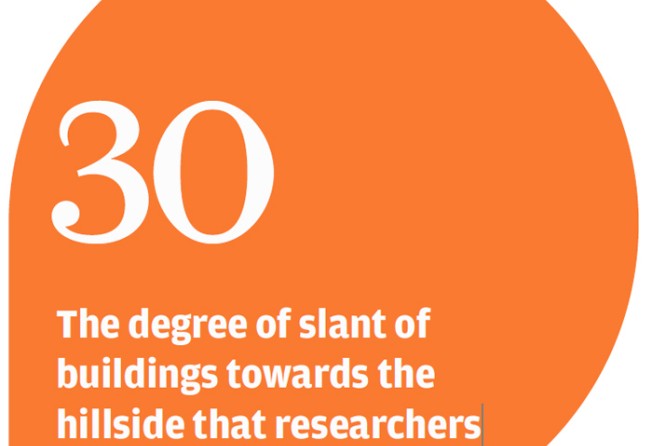
Optical illusion on Peak Tram explained
University team studies why buildings along the railway appear to be falling

Ride the Peak Tram and there's something funny that happens. The skyscrapers hugging the railway look like they're falling towards the mountainside.

"Every time I would have visitors, I would take them on the Peak Tram. And each time, I'd find it amazing that the skyscrapers looked like they were falling down," Tseng said.
She pointed out that no such mind tricks occurred when you walk down a street. But travelling up the slope of The Peak our brains fail to correct the verticality, despite the visual references in the background that should help us correct the illusion, she said.
Tseng, with four trained observers, who ranged in age from 22 and 74, conducted eight experiments to see how the pressure exerted on different parts of the body while riding the tram, the information the eye took in, and the sense of balance created by the inner ear as the head tilted could be responsible for the illusion.
What they found was that it wasn't simply down to the eyes - the combination of all of the above made it appear as if the buildings were falling towards the mountainside by as much as 30 degrees.
The researchers said the effect was more pronounced at night, and it didn't matter whether the train was going up or down - the illusion remained the same, although at times the perceived angle of the tilt changed.
"We took the same tram up and down for hundreds of trips, and the illusion was never reduced," Tseng said.
"This suggests that our experiences and our learned knowledge about the world - that buildings should be vertical - are not enough to cancel our brain's wrong conclusion."
The study was published in Psychological Science, in collaboration with Hiu Mei-chow of the University of Hong Kong and Professor Lothar Spillmann, now at Dartmouth College in the United States and the University of Freiburg in Germany.
The phenomenon has not been recorded on any other railways as, no others have skyscrapers at such proximity to the tracks, Tseng said.